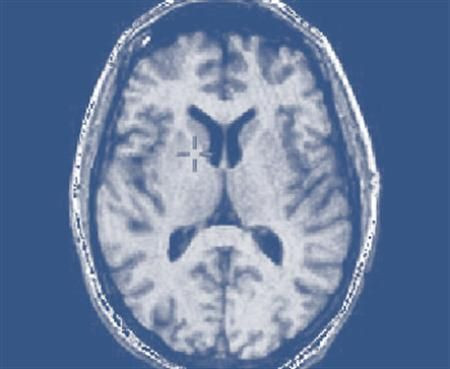FDA-approved drug could limit the spread of deadly brain tumours

A team of researchers has identified a drug called propentofylline, or PPF, that could help treat patients with deadly brain cancer.
PPF, which has been approved by the U.S. Food and Drug Administration, has been previously used in clinical trials in an attempt to treat Alzheimer's disease and dementia. The drug works because it can penetrate the blood-brain barrier and reach the tumour, according to the study’s authors from Translational Genomics Research Institute, or TGen.
In a study published today in the Journal of NeuroOncology, the team reports that PPF limits the spread of glioblastoma multiforme, or GBM, which is the most common primary tumour of the brain and central nervous system. The drug, which works by targeting a protein called TROY, also increases the effectiveness of a standard-of-care chemotherapy drug and radiation to treat glioblastoma.
GBM, considered to be among the most aggressive of all cancers, affects people of all ages. One of the primary treatments for glioblastoma is surgical removal of the tumour. However, because of the aggressive way glioblastomas invade surrounding brain tissue, it is impossible to remove all parts of the tumors, and the cancer eventually returns and spreads. The cancer invasion also limits the effectiveness of chemotherapy drugs and radiation therapy.
TGen researchers found that PPF could limit the spread of glioblastomas by targeting and knocking down the expression of the TROY protein. They have linked TROY to the cellular mechanisms that enable glioblastomas to invade normal brain cells, and resist anti-cancer drugs.
The team also discovered that PPF could address one of the fundamental challenges in treating brain cancer with drugs, called the blood-brain barrier. This barrier separates circulating blood from the brain extracellular fluid in the central nervous system, and protects the brain from toxins. However, this security system is so effective at protecting the brain that it prevents many life-saving drugs from being able to treat cancer and other diseases of the brain.
As a result, there has been little progress in finding new effective treatments for GBM. The average survival period of newly diagnosed GBM patients is only about 14 months, and only five percent of patients survive more than five years.
“Clinical trials revealed that PPF can cross the blood-brain barrier, and has minimal side effects. PPF could be easily translated to the clinic as an adjuvant therapy in combination with standard of care treatment for GBM patients,” says Dr. Nhan Tran, associate professor and head of TGen's Central Nervous System Tumor Research Lab.
According to Cancer Council Australia, brain tumours cause the highest economic burden on Australian cancer patients’ households, with an average cost estimated to be more than five times higher than for breast or prostate cancer patients. A study in Victoria has also recently documented that while radiotherapy offers a major survival benefit, only 68 percent of GBM patients received the treatment.
Contact the writer at feedback@ibtimes.com.au or tell us what you think below.





















